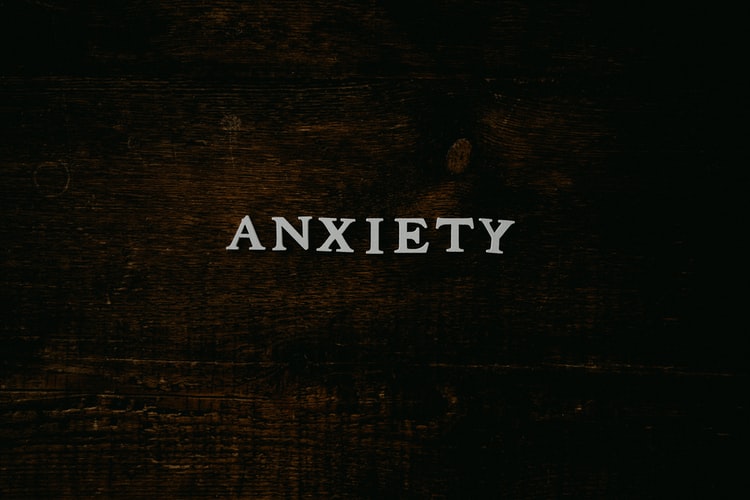Did you know that anxiety affects more than just your brain and emotions? It can also have a major impact on your overall physical well-being.
According to recent studies, an anxious state of mind may significantly reduce your health in several ways. So, that’s why it’s so important to know what’s going on inside your head. Then, you must create effective strategies to help yourself cope or recover.
What is anxiety?

Anxiety is a mental health disorder that ranges in severity and can affect anyone regardless of age, gender, socioeconomic status, or religion. It’s usually characterized by extreme worry or fear, often originating from irrational stimuli or untreated trauma. Moreover, those worries and fears can become strong enough to interfere with a person’s everyday life and disrupt their long-term goals.
FACT: More than forty million people are diagnosed with some form of anxiety disorder in the United States.
The most common symptoms of anxiety:

It may be difficult to determine whether you or someone you know has anxiety because some of the symptoms can be rather mysterious. Furthermore, getting diagnosed with a mental health disorder may exacerbate the existing symptoms, and being vulnerable around a counselor may not sit well either. That, in turn, can make getting the proper diagnosis even harder.
So, start when and where you feel most comfortable. Take an at-home self-evaluation to figure out if you’re too anxious for your own good. And in the meantime, look for the following signs:
- Nervousness
- Lack of focus
- Hypervigilance
- Restlessness
- Irritability
- Racing or disturbing thoughts
- Fatigue
- Insomnia
- Nausea or vomiting
- Racing heart
- Excessive perspiration
If you experience any of these symptoms on a frequent basis or if they’re ever uncontrollable, you may have diagnosable anxiety. Don’t let the problem persist for too long, though. Untreated anxiety disorder can damage your physical health in more ways than one.
5 ways anxiety affects your body:
Everyone gets anxious every now and then, but chronic anxiety can leave your body looking, feeling, and functioning poorly. Here are five prime examples:
#1. Central Nervous System:
Your brain releases stress hormones like cortisol into the bloodstream when you’re worried about something. And you get an extra kick of it when your fight or flight response is activated. Meanwhile, an anxiety disorder can make those hormones flood your central nervous system too frequently, resulting in jitteriness or emotional numbness over time.
#2. Immune System:
The fight or flight response also causes adrenaline to flood your bloodstream. That, in turn, increases your heart rate and makes your body boost its own immunities. After a while, though, levels return to normal as a preventative measure against immunity weaknesses. But if you’re always worried, that never happens and your immune system suffers as a result.
#3. Cardiovascular System:
Extreme stress and worry can have a major impact on your cardiovascular system especially. That’s because anxiety is often associated with high blood pressure, palpitations, and an increased risk of heart disease. Too much cortisol and adrenaline put excess tension on your heart and veins, making you more susceptible- to heart attacks, stroke, and even brain aneurysms.
#4. Digestive System:
Your digestive and excretory systems are directly affected by your mental health. So, extreme anxiety can lead to indigestion, stomachaches, cramping, diarrhea, nausea, and constipation. And since this system is responsible for clearing out toxins in the bloodstream, disrupted digestion can have subsequent side effects that reduce your health in other ways too.
#5. Respiratory System:
When you’re experiencing anxiety or a panic attack, your breathing often slows or speeds up. And if you have a pre-existing respiratory condition such as asthma or COPD, obstructed breathing can do significant damage to your lungs and throat. But even if your organs are otherwise healthy, prolonged breathing problems can lead to something more permanent.
Meanwhile, here are some of the short-term effects of anxiety disorder on the human body:
- Muscle tension
- Headaches
- Migraines
Remember, untreated anxiety can compel someone to isolate themselves from society. It may also develop into agoraphobia over time, which is the irrational fear of leaving one’s house or interacting with the public. So, seek help as soon as possible if you experience any of the side effects mentioned here.
How to get help for anxiety when you need it:

Anxiety is one of the most common mental health disorders on the planet, so it’s very well understood by professionals. At the same time, effective treatments and coping strategies have been developed over the years, with new concepts being explored every year.
Today, patients can choose between many therapeutic approaches, including cognitive-behavioral therapy (CTB), psychotherapy (talk therapy), and group counseling. Best of all, some of the sessions can be attended online from home.
The takeaway:
Your body may be telling you something, and it might be saying you have a major anxiety disorder. If that’s true, you should seek professional or medicated help immediately to prevent the condition from taking over your life or negatively affecting your physical health.
Read Also:




























